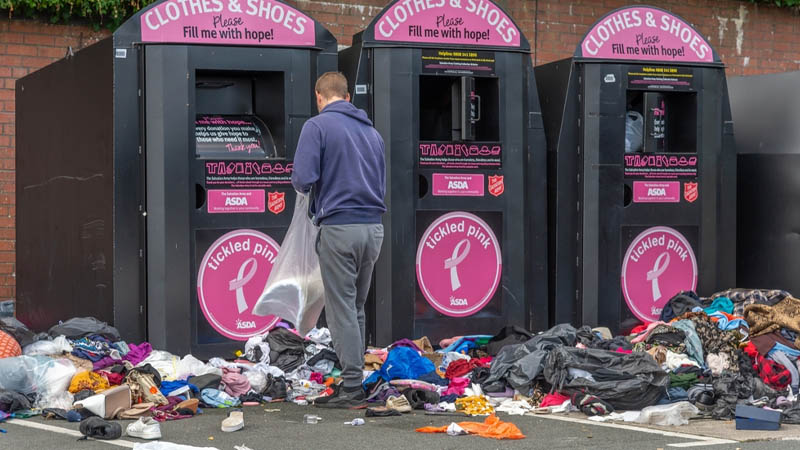
“Inaccurate Data Must Cease”: Ghana Used Clothing Dealers Association Debunks Textile Waste Crisis Claims
Share0Reports of a textile waste crisis in Ghana have been debunked by the country’s Ghana Used Clothing Dealers Association, who challenge the prevailing beliefs of uncontrolled pollution and waste. Ghana is the world’s largest importer of used clothing, with most of the garments ending up in Kantamanto in Accra, the world’s largest second-hand clothes market.
The Guardian conducted a study last year showing that 100 tonnes of garments leave the market daily as waste. According to the study, about 30 percent is collected by the city, while the rest ends up in illegal dumps, ditches, or drains. However, Ghana’s Used Clothing Dealers Association asserts that less than 5 percent of imported clothing qualifies as waste.
The Guardian’s photo report presents a starkly different scenario, documenting the tragic impact of unsold garments on the local environment. The images show textile waste hanging off cliffs along the coastline and clothing discards scattered across lagoons and beaches, highlighting the environmental toll.
Atobrah Binkley, General Secretary of the Association, insists that the perpetuation of what he describes as “inaccurate data regarding the second-hand clothing (SHC) trade” must cease. He urges accountability from those responsible for disseminating misleading figures.
Binkley emphasizes the trade’s significant role in mitigating climate change, tackling waste, and countering the adverse impacts of fast fashion, while also sustaining livelihoods and bolstering Ghana’s economy.
Ghana has a significant socioeconomic reliance on textile imports, and the Association is keen to highlight the positive aspects of this trade, such as fostering resourceful entrepreneurship. The Association is calling for a critical reevaluation of the misconceptions surrounding the trade, urging policymakers in the Global North to reassess their assumptions and engage with the nuanced realities of Africa’s agency in the SHC market.
Amidst the influx of cheap, fast fashion worldwide, the quality of discarded clothing reaching Ghana continues to deteriorate. According to multiple reports, as much as 40 percent of imported garments in Ghana are deemed unusable, ultimately culminating in waste.
The debate over textile waste in Ghana underscores the complexity of the issue. While the Guardian’s report highlights severe environmental impacts, the Ghana Used Clothing Dealers Association points to significant inaccuracies in the data presented. This disparity calls for a more nuanced understanding and dialogue between global policymakers and local stakeholders to address the true scale and nature of the problem.
The Association’s stance underscores the importance of responsible reporting and the need for accurate data to inform policy decisions. As the world grapples with the challenges of fast fashion and waste, Ghana’s experience serves as a critical case study in the global discourse on sustainable fashion practices.
